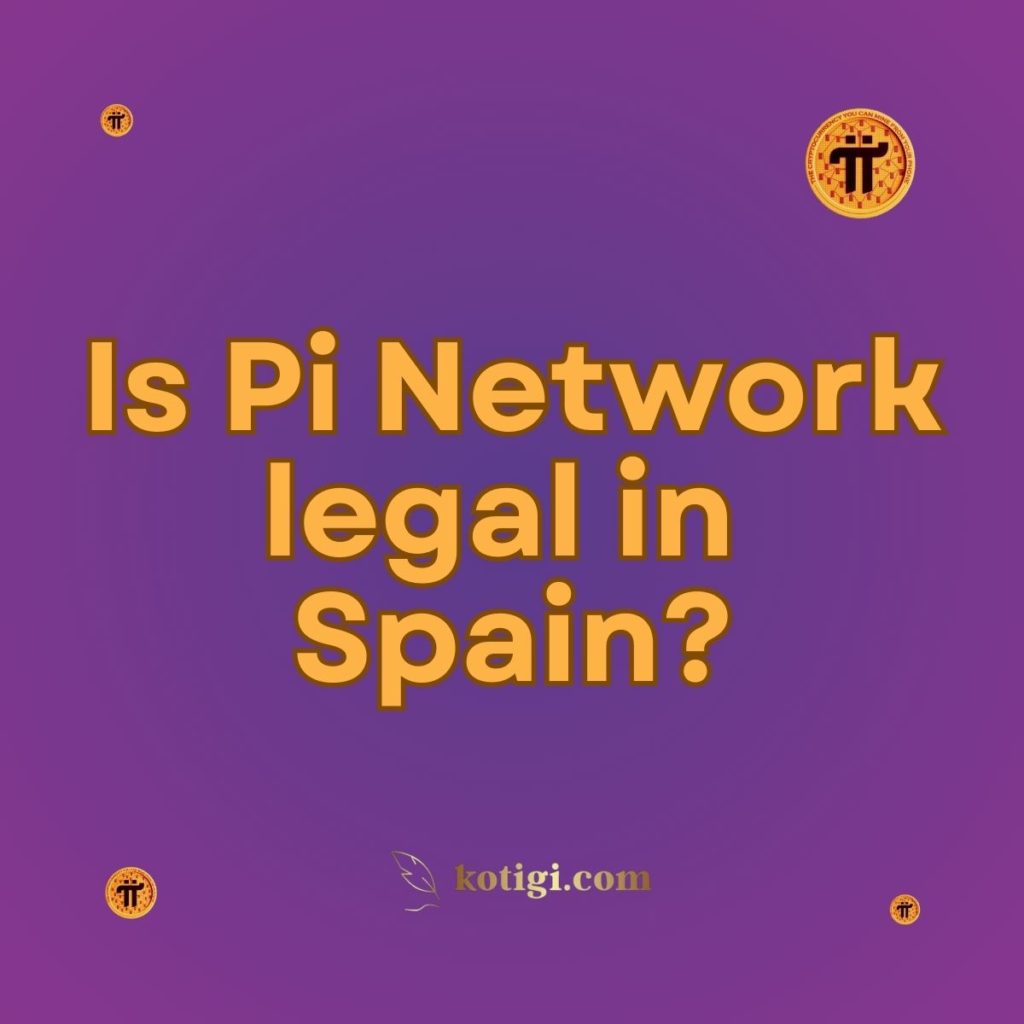
Is Pi Network legal in Spain?
Yes, Pi Network is currently legal in Spain, but it must comply with the existing regulatory framework for cryptocurrencies and digital assets. Spain follows European Union (EU) directives and has established regulations to manage the use of cryptocurrencies like Pi Network. Below is an overview of the legal and regulatory considerations for Pi Network in Spain:
1. Regulatory Status in Spain
In Spain, cryptocurrencies are considered legal but are not recognized as legal tender. The Spanish regulatory framework is aligned with EU-wide regulations and is primarily concerned with ensuring consumer protection, preventing money laundering, and maintaining financial stability. The Spanish Securities Market Commission (CNMV) and the Bank of Spain oversee the regulation of digital assets, including cryptocurrencies.
Pi Network, like other cryptocurrency projects, is not specifically regulated under Spanish law but must comply with applicable financial and securities regulations. As long as Pi Network does not offer securities or financial products, it is not subject to specific CNMV regulations but must still adhere to general guidelines for consumer protection and anti-money laundering (AML).
2. Oversight by the CNMV and the Bank of Spain
The CNMV (Comisión Nacional del Mercado de Valores) and the Bank of Spain (Banco de España) are the primary regulatory bodies for cryptocurrencies in Spain. They have issued warnings about the risks associated with investing in digital assets, such as volatility, fraud, and lack of regulation.
If Pi Network introduces features involving financial transactions or its tokens are traded on public exchanges, it may fall under the supervision of these authorities. This could require compliance with registration, disclosure, and reporting obligations to provide transparent information to users and investors.
3. Anti-Money Laundering (AML) and Know Your Customer (KYC) Regulations
Spain has implemented stringent AML and KYC regulations in line with EU standards. Cryptocurrency exchanges and service providers must register with the Bank of Spain and comply with these regulations to prevent money laundering and other illicit activities. If Pi Network introduces any features that involve the exchange or transfer of Pi tokens, it would need to implement KYC procedures and comply with AML directives.
4. Taxation and Consumer Protection
For tax purposes, cryptocurrencies in Spain are considered digital assets. Gains from the sale, trade, or exchange of digital assets like Pi Network’s tokens are subject to capital gains tax. Spanish residents must report their cryptocurrency transactions to the tax authorities and pay any applicable taxes according to the guidelines provided by the Agencia Tributaria (Spanish Tax Agency).
Spanish consumer protection laws also apply to crypto-related platforms to ensure transparency and fairness. If Pi Network operates in Spain, it must ensure compliance with these laws to avoid misleading practices and provide clear information about the risks associated with its services.
5. Compliance with European Union (EU) Regulations
As an EU member, Spain follows EU directives and regulations, including those concerning cryptocurrencies and digital assets. The forthcoming Markets in Crypto-Assets (MiCA) regulation is expected to provide a comprehensive framework for regulating digital assets across the EU. Pi Network must comply with both Spanish laws and these upcoming EU regulations to operate legally in Spain and the broader EU region.
Conclusion
Pi Network is currently legal in Spain, but its regulatory status depends on its development and adherence to existing laws and regulations governing digital assets. The Spanish legal framework, aligned with EU directives, requires compliance with AML, KYC, taxation, and consumer protection regulations. As the regulatory environment for cryptocurrencies evolves, Pi Network must ensure compliance to avoid legal challenges. Spanish users should stay informed about regulatory changes to minimize risks and ensure they adhere to legal requirements.




